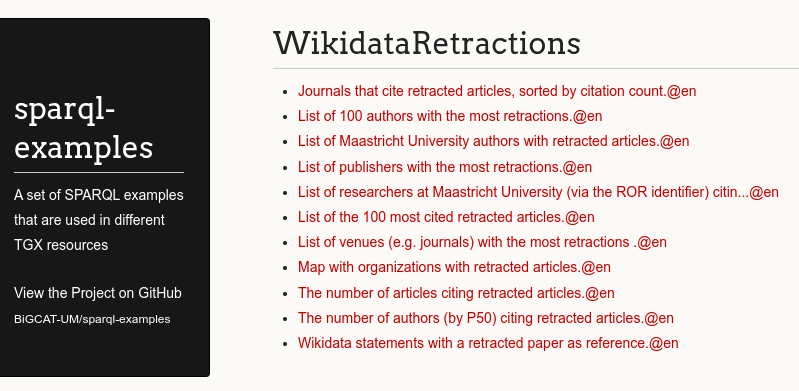Retracted articles in Wikidata
A good number of years ago, a colleague and I explored if we could get access to the Retraction Watch Database, but we could not afford it. We have been using data on retractions for curate our databases, like WikiPathways. A database should not contain knowledge based on (only) a retracted article. Wikidata, btw, has a small number (499) of statements supported by retracted articles. Similarly, it turns out that I am citing retracted articles in two papers (and a preprint of one of them).
Wikidata has a good number of retracted articles in their database (some 21 thousand at the time of writing). A lot of this data comes from CrossRef, that recently acquired the Retraction Watch Database (doi:10.13003/c23rw1d9)) and started providing the content as FAIR and Open data. With a Bacting-based script I am regularly updating Wikidata with annotations from CrossRef, giving a rich dataset in Wikidata around the queries. Over the past few years I have written various SPARQL queries to show the results which today I collected under a single home:

You can use your Mastodon or other ActivityPub-based Fediverse-account to comment on this article by leaving a publicly visible reply to this associated post. Content warnings are supported. You can also delete your comments at any time by deleting your post on the Fediverse.